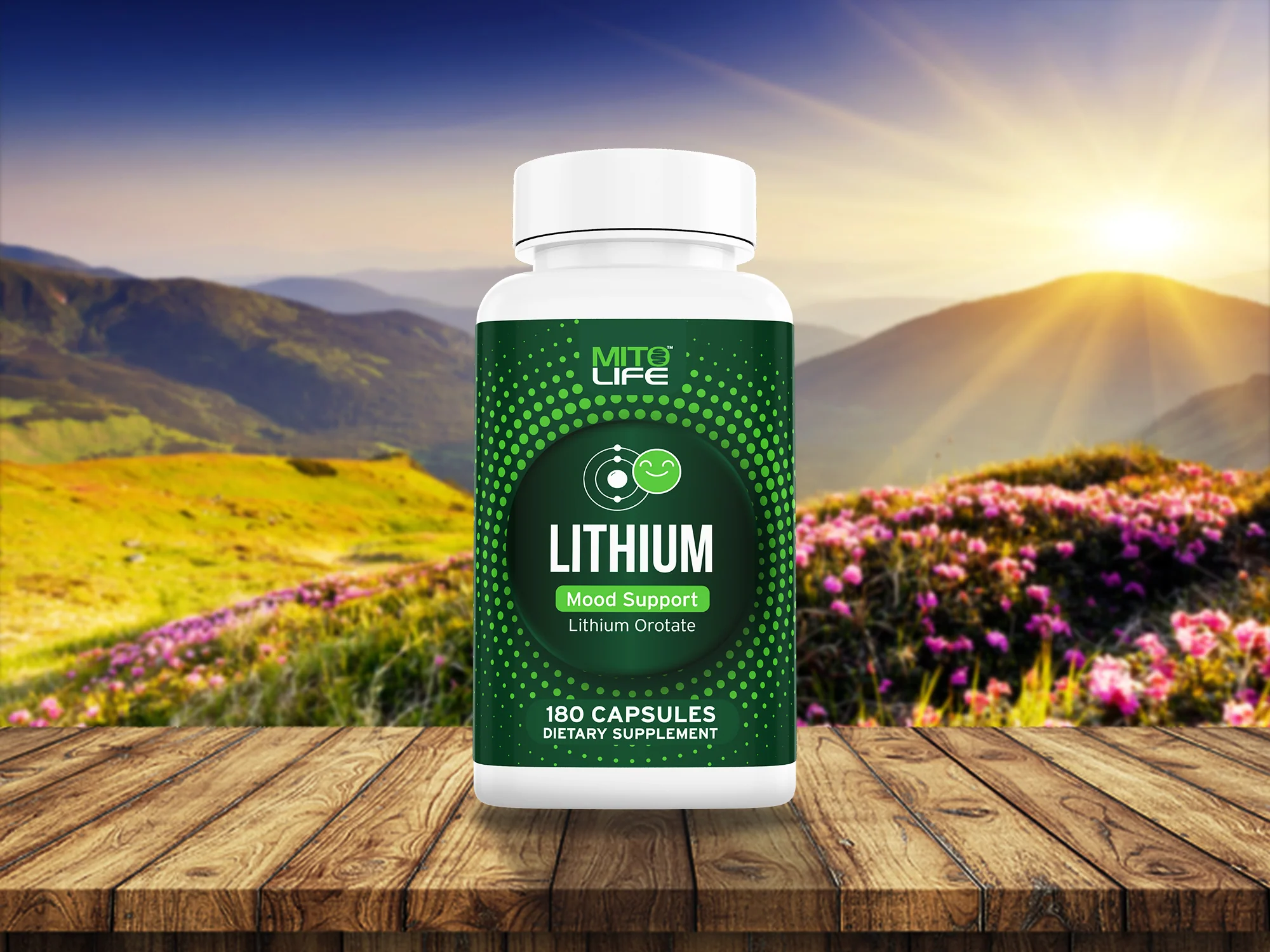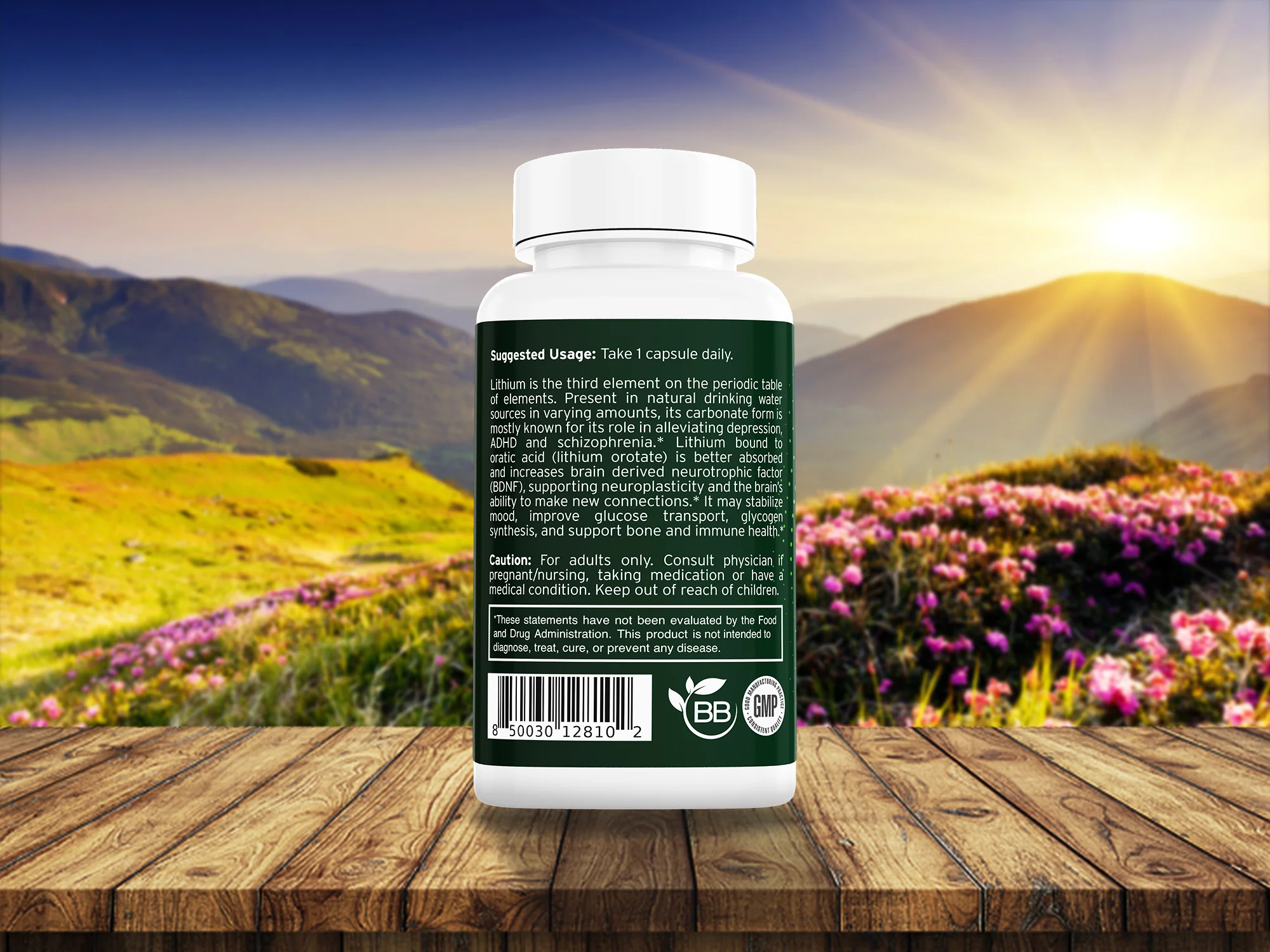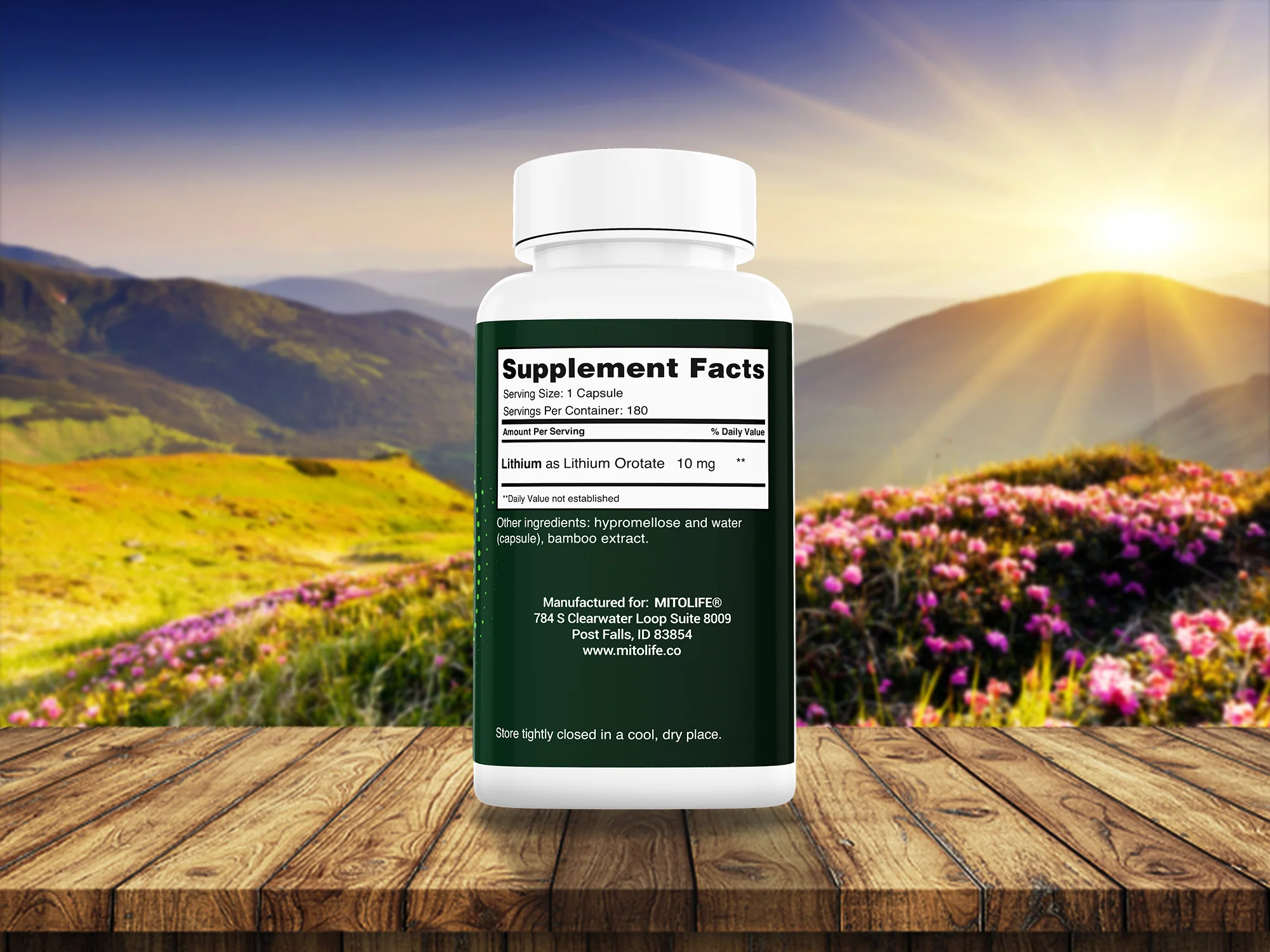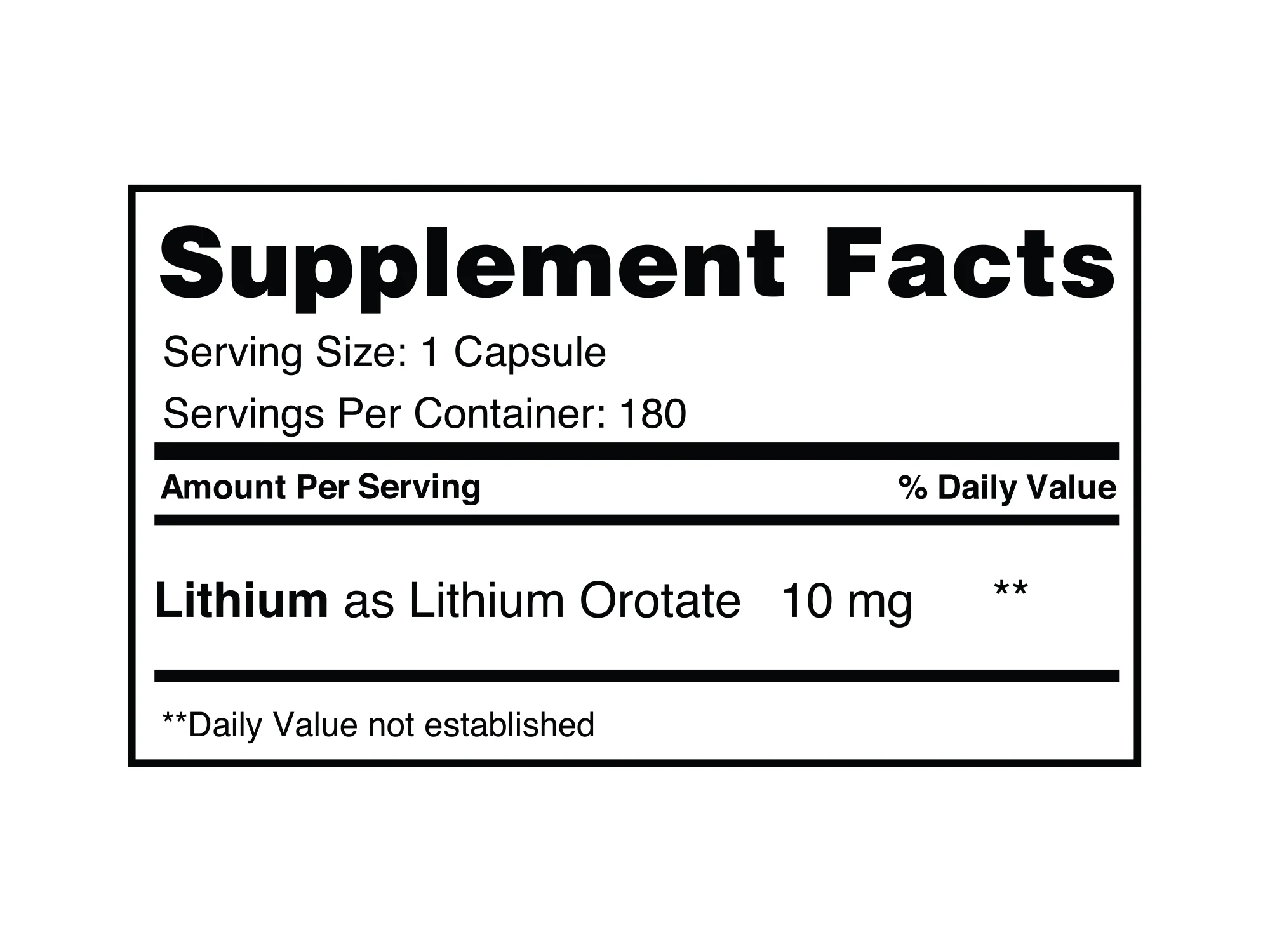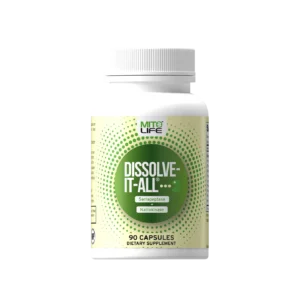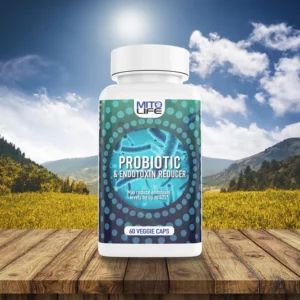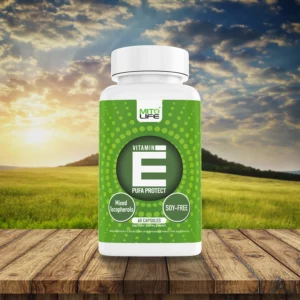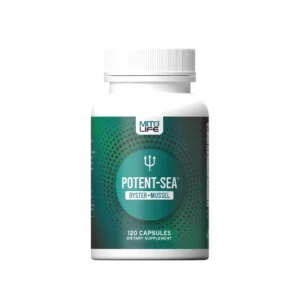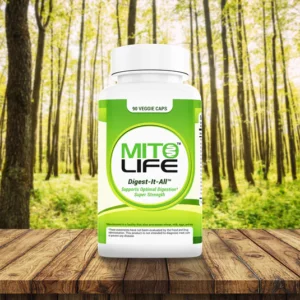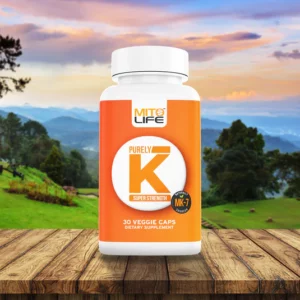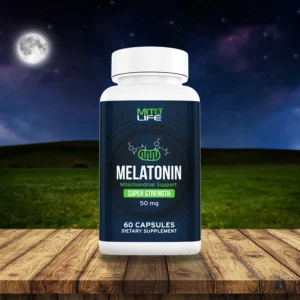Description
Support your brain health with the trace mineral lithium.
Lithium is an alkali mineral salt that we are most familiar with incorporated into rechargeable batteries found in our laptops, phones and electric vehicles. The truth is that lithium is a naturally occurring mineral, sometimes found in mineral waters, that has profound effects on our brain and overall health.
High dose lithium carbonate or citrate have been used by doctors to treat brain disorders such as bipolar and mania. Such high doses of 600-1200 mg daily have often caused heart arrhythmias, muscle tremors, hypercalcemia, weight gain and other negative effects.
Lithium bound to oratic acid is called lithium orotate. Many people respond better to it than the other forms, possibly because the dosage doesn’t need to be nearly as high; Andean folk in Northern Argentina consume 2-30mg daily in their drinking water (Concha, et al 2010).
BENEFITS OF LITHIUM:
- Mood support via regulating the release of neurotransmitters dopamine, noradrenaline and serotonin
- Reproductive support by its pivotal role in early fetal development (Schrauzer, et al 2002)
- Cardiovascular support by activating the PI3K/Akt pathway which regulates GSK3 activity, consequently increasing SERCA function, a calcium handling protein. In English this means that cardiac contractile function and overall cardiac muscle function is improved (Hamstra, et al 2020).
- Maintaining healthy vasculature, supporting oxygen delivery and metabolite transport to and form various organs (Choi, et al 2010; Bosche, et al 2016).
- Bone health support, increasing bone formation and mass (Kurgan, et al 2019; Clément-Lacroix, et al 2005).
- Staving off sarcopenia, age-related decline in muscle mass and strength (Kurgan, et al 2019).
- Supports the pancreas, improves hyperglycemia and glucose removal (Zhang, et al 2021; Jung, et al 2017)
- Neuroprotective effects via modulating homeostatic mechanisms in the brain (autophagy, mitochondrial function, neurotrophic response) staving off Alzheimer’s, ALS, and Parkinson’s (Forlenza, et al 2014).
- Lowering inflammation and oxidative stress (Khairova, et al 2012)
- Protects against lipid peroxidation (Shao, et al 2005)
Every year we discover more and more benefits of this potent mineral. Much of the benefits elucidated in the studies cited above are a result of inhibiting GSK3, Glycogen Synthase Kinase-3, an enzyme involved in glycogen metabolism. Elevated levels have been implicated in type 2 diabetes and obesity. GSK3 inhibitors have been used to normalize blood glucose levels, combat various neurodegenerative and neuro-inflammatory disorders, combat depression and anxiety, increase neurogenesis, and regulate the circadian rhythm.
Lithium is a natural GSK3 inhibitor along with zinc and melatonin.
SUGGESTED USAGE:
Take one capsule once per day with or without a meal.
STUDIES:
Lithium: occurrence, dietary intakes, nutritional essentiality
A Low-Therapeutic Dose of Lithium Inhibits GSK3 and Enhances Myoblast Fusion in C2C12 Cells
Effect of Lithium on the Mechanism of Glucose Transport in Skeletal Muscles
Effects of lithium on oxidative stress parameters in healthy subjects


